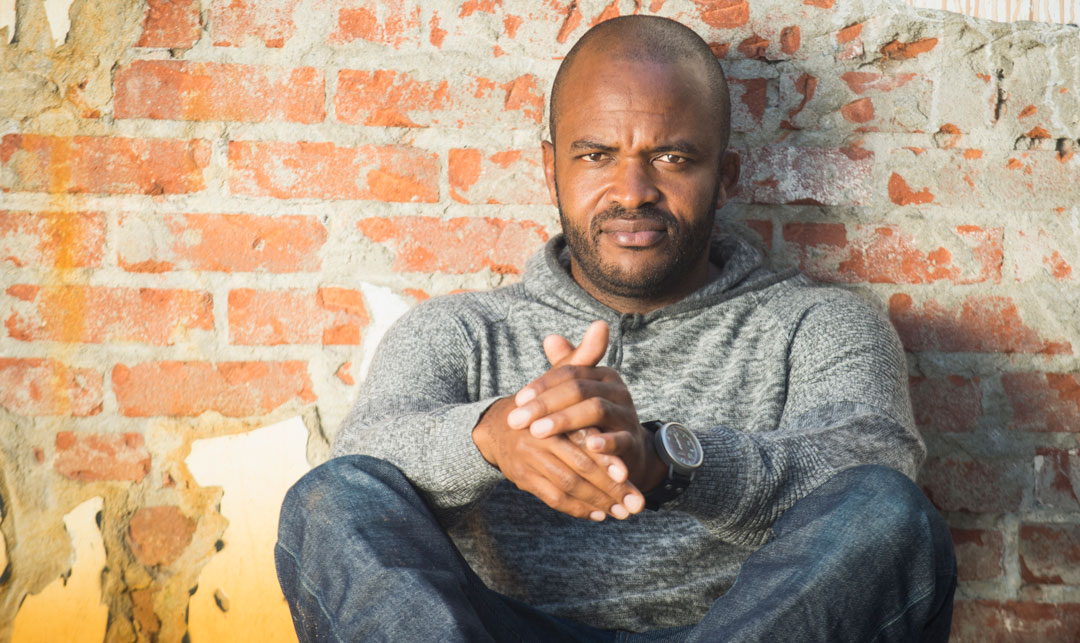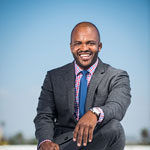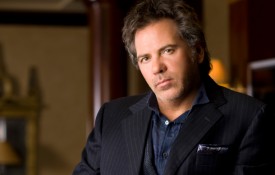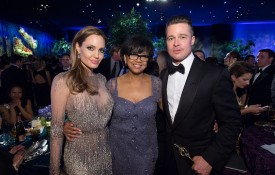Selema “Sal” Masekela is a cultural icon. Known to many as the voice of action sports, the New York-born, Venice-residing Renaissance man is a commentator, journalist, musician, producer, fashion line owner, and nonprofit leader. After a 13-year stint hosting the X Games on ESPN, he’s now the host and executive producer of VICE World of Sports and a host of the Red Bull Signature Series. He’s also the founder of Stoked Mentoring – an action sports nonprofit. With skateboarding making its Olympics debut in Tokyo in 2020, we felt there was no better time to chat with the action sports icon about his past, present, and future.
Neftalie Williams Tell me more about your Viceland show
Selema Masekela When we first decided to make VICE World of Sports, we had to figure out what the objective was. For us, it was the opportunity to showcase cultures, places, and people in America and the world you normally would not get to know, with sports as an entryway.
NW You were the face – and voice – of action sports for so many years. You grew people’s knowledge of the culture so organically. Can you talk about the professional risk of leaving ESPN and no longer hosting the X Games?
SM My relationship with ESPN was fruitful for a long time. I got an education in how to be a broadcaster, while having the opportunity to share with ESPN my depth of experience and knowledge of action sports culture.
It reached a point where the X Games were no longer championing the culture of the sports. It was starting to feel like, ‘Let’s just see the most extreme thing we can put on television, take some of the core aspect, squeeze it down, and give it token time.’ To walk away was actually the easiest thing to do.
A lot of people thought, ‘How could you leave the worldwide leader in sports? ESPN is so safe.’ But, I saw what Red Bull Media House was doing in making an investment and supporting the various cultures of these individual action sports and that’s what originally got me going. Red Bull and now Vice have given me freedom and it’s wild to be working in these two places that are pivotally making a difference in how people consume and view groundbreaking content. I couldn’t dream of a better situation.
NW What about still having visibility?
SM That was the main thing people questioned me about. I’d been on television for a long time and had seen different levels of fame. Everywhere I went, I was the man. I was fully recognizable. But you don’t get any special powers from it. You don’t get satisfied at a soul level. I found myself at a loss between the person everybody knew on television and what’s left. I said, ‘Who are you and what do you want?’ There was a gnawing feeling in my stomach that I wasn’t being true to myself.
NW In the African American community, many have said that former President Barak Obama had to live the double life. He needed to be good to the ‘black’ community and connect with them in a way that was authentic, but he also needed to balance his approach because if he appealed too much or close to that audience, it would change the way other people thought about him and his policies. Not to compare you too much to the [former] President….
SM [Laughing] I think [late sportscaster] Stuart Scott was the greatest inspiration for me because he walked the line perfectly. He was well-spoken but he also made sure that Biggie and Pac references were abundant and spoke in a way everyone could identify with. He went through the same things I did and gave me the clearance to stay true to myself.
“Stuart Scott was the greatest inspiration for me … He was well-spoken But he also made sure that Biggie and Pac references were abundant and he spoke in a way everyone could identify with … he gave me the clearance to stay true to myself.”
NW When you’re a person of color, especially being black in America, you must be ‘exceptional’ and that is sometimes perceived as making you an ‘exception’ to your race. You’re never just the ‘anonymous nobody’ or an average human being – everything you do either falls in line with what people expect, or it doesn’t. It cuts both ways – it’s empowering, but it’s also sad and hurtful. Do you feel that?
SM I never felt empowered by it. I always felt awkward, and when I was really young, I didn’t know how to react so I’d be quiet. It took a few beat-downs to say ‘no more.’
The last straw was getting fired from a surf shop by being told that there was no more room on the schedule, then finding out later that the owners decided they didn’t like their ‘experiment’ because I didn’t fit the image of what a surf shop was. At nineteen years of age, it was my dream to work at that shop. After being fired, I went back to being a bank teller. Two months later, the surf shop manager who had to fire me came in and told me the truth, and started crying because her conscience had been killing her.
That was it. That was when the real revolution began, because I wanted to sue those people. I told myself it was going to be my name on that surf shop. My mother said to me, ‘Well, you could legally do that. Or you could find a way to use this to do what you want to do, actually find your place in that industry, and hold your head high.’ Eight years later, that same shop would end up carrying my brand, Alphanumeric.
NW That happened in North County, San Diego, where you used to reside. You’ve lived in two of the most historic surfing and skate areas in Southern California and, really, the world. You live in Venice now, but tell me about coming up in North County.
SM My parents could have moved anywhere when we came from the East Coast when I was sixteen. They had no idea what they were choosing, but chose a place that happened to be the cultural hotbed of the explosion of action sports culture. You didn’t just participate in these activities casually. It was a place where you lived that lifestyle.
NW So why move to LA?
Selema Masekela I’d reached a point where I was like, ‘Alright I’m killing it here, I’m the guy.’ I had awoken the creativity within me, and got represented by an agent in LA. It was really, really hard. North County is a utopia for a skater or a surfer. LA skateboarding’s core scene is spread out, while surfing only has a handful of people. LA has a hardcore skate scene, but it’s the opposite with surfing. It’s a novelty, and finding a community of people who live it is very, very difficult. I chose the Westside, because I at least needed to feel like I had some of that.
NW It was a good business move for you to go to LA, but do you think skaters and surfers care enough about the business side? Have you seen a change from when you started?
SM Definitely. In the beginning, people enjoyed being professional because it gave them a means to keep doing what they loved. They weren’t encouraged to think long term. There were very few owners paying them the type of money where they could grow and feel like they had skin in the game. People would get excited about the fact that they were getting free shit and $2,000 a month.
There was a long period there where the companies refused to deal with agents because ‘they’re not like us.’ It was a bro-driven industry, but those who felt guilty about wanting to get what’s best for themselves would get fucked as a result.
Now, it’s a different deal. There’s business managers and agents that the companies deal with. These athletes are business-savvy, too. They’re investing their money and starting brands and sub-brands. The relationship now between an athlete and agent starts as young as nine or ten years old for kids who really show long-term promise. It’s crazy.
NW When did you feel it was okay to start calling yourselves “athletes?”
SM I never thought of talking about it that way until I got to ESPN. To reach this person in Nebraska, Atlanta, New York, it was necessary for them to understand they were witnessing athleticism of the highest order. An order as high as Kobe [Bryant] or Michael Jordan, or any great player in any other sport.
From a business standpoint, riders thinking of themselves as athletes elevates their sense of self. They think ‘Kobe or Lebron [James] might do what they do on the hardwood, but I’m just as much of an athlete when I throw myself down these twenty stairs.’ It’s just a different playing field.














































